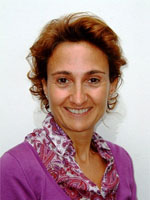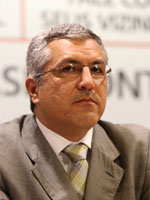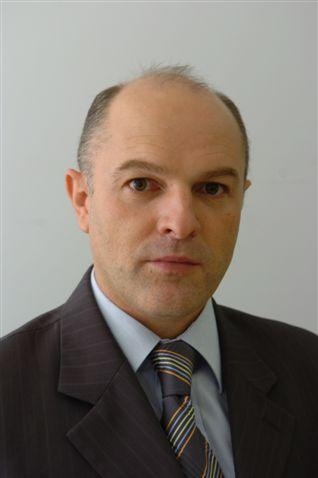Health Technology Assessment International - HTAi
HTAi is an international not-for-profit society dedicated to supporting
the development, communication, understanding, and use of health
technology assessment around the world, promoting the introduction of
innovations and improved effectiveness in the use of healthcare
resources. (
www.htai.org)
 |
Laura Sampietro-Colom
President of HTAi Society |
Brazilian Ministry of Health
The Brazilian Ministry of Health is an agency of the Federal Executive
Branch in charge of organizing and elaborating public plans and policies
focused on health promotion, prevention, and healthcare for the
Brazilian people.
The role of the Ministry is to ensure the conditions for the protection
and recovery of the population’s health, reducing illness, controlling
endemic and parasitic diseases, and improving health surveillance,
thereby providing better quality of life for Brazilians.
MISSION: “To promote the population’s health through the integration and
establishment of partnerships with Federal agencies, States,
Municipalities, private enterprise, and society, thus contributing to
the improvement of quality of life and the exercise of citizenship."
 |
Minister Alexandre Padilha, Ministry of Health, Brazil
Honorary Chair of 8th Annual Meeting of HTAi 2011 |
Secretariat of Science, Technology, and Strategic Inputs (SCTIE)
The Secretariat of Science, Technology, and Strategic Inputs (SCTIE),
under the Ministry of Health, is in charge of implementing policies for
pharmaceutical care, evaluating and incorporating technologies into the
Unified National Health System, and promoting the health sector’s
industrial and scientific development. In the area of science and
technology, the Secretariat is responsible for promoting research
development in the country in order to target investments by the Federal
government to meet the country’s public health needs.
Together with other ministries and government agencies, the Secretariat
orients the policy of the Health Industrial Complex for the public
sector, fostering the development of the pharmaceutical, equipment, and
health technologies industry. The Federal government’s aim is thus to
make Brazil independent of the foreign market.
Since 2003, the Ministry of Health, in partnership with the Ministry of
Science and Technology and Federal and State research foundations like
FINEP, CNPq, and CAPES, earmarked R$700 million (U$400 million) for
3,600 studies on Brazil’s main public health challenges. More than 400
academic institutions have headed these research projects. Such
investment is the material expression of the understanding by the
Ministry of Health concerning the priority of promoting research in a
country that aims to improve healthcare for its citizens and boost the
production of relevant scientific knowledge.
 |
Professor Carlos Augusto Grabois Gadelha
Secretary of Science, Technology and Strategic Products, Ministry of Health, Brazil
Chair of 8th Annual Meeting of HTAi 2011 |
Department of Science and Technology in Health (DECIT)
The Department of Science and Technology in Health (DECIT), part of the
Secretariat of Science, Technology, and Strategic Inputs under the
Ministry of Health, has as its main objective to encourage and increase
the development of health research in order to meet the needs of the
Unified National Health System (SUS) and the Brazilian people’s health
demands. The Department’s mission is to provide an approach between
scientific knowledge and decision-makers and policy-makers at the three
levels, Federal, State, and Municipal.
To meet its main objective, DECIT works according to the guidelines of
the National Agenda for Health Research Priorities (ANPPS), consolidated
in 2004 during the 2nd National Conference on Science, Technology, and
Innovation in Health.
The actions developed by DECIT target the following areas: research
promotion; increased government regulatory capacity in the field of
science, technology, and innovation in health; and dissemination of
scientific and technological advances in health. (
www.saude.gov.br)
 |
Flávia Tavares Silva Elias
Coordinator of Health Technology Assessment– DECIT/MS |
National Health Surveillance Agency (ANVISA)
The mission of the National Health Surveillance Agency (ANVISA) is to
protect and promote the population’s health by guaranteeing the health
safety of products and services. The Agency’s various responsibilities
include: coordinate the National Health Surveillance System; promote and
conduct studies and research in the area of its attributions; set
standards and norms, and propose, monitor, and implement policies,
guidelines, and actions in health surveillance; set standards and norms
on limits for contaminants, toxic waste, disinfectants, heavy metals,
and other substances and materials that involve health risks; intervene
temporarily in the administration of manufacturing organizations that
are funded, subsidized, or maintained with public resources, as well as
in service providers and/or exclusive or strategic producers in
supplying the national market, in accordance with the specific
legislation. (
www.anvisa.org.br)
 |
Dirceu Brás Aparecido Barbano
Director Chairman of National Health Surveillance Agency – ANVISA |
Oswaldo Cruz Foundation (FIOCRUZ)
Linked to the Ministry of Health, the Foundation conducts activities
that include research development; provision of reference hospital and
outpatient services; manufacturing of vaccines, drugs, reagents, and
diagnostic kits; teaching and human resources training; information and
communication in health, science, and technology; quality control of
products and services; and implementation of social programs. The
Foundation houses more than 7,500 employees and professionals under
various contracts, a workforce that is proud to be at the service of
life. (
www.fiocruz.br)
 |
Paulo Ernani Gadelha Vieira
President of Oswaldo Cruz Foundation |

